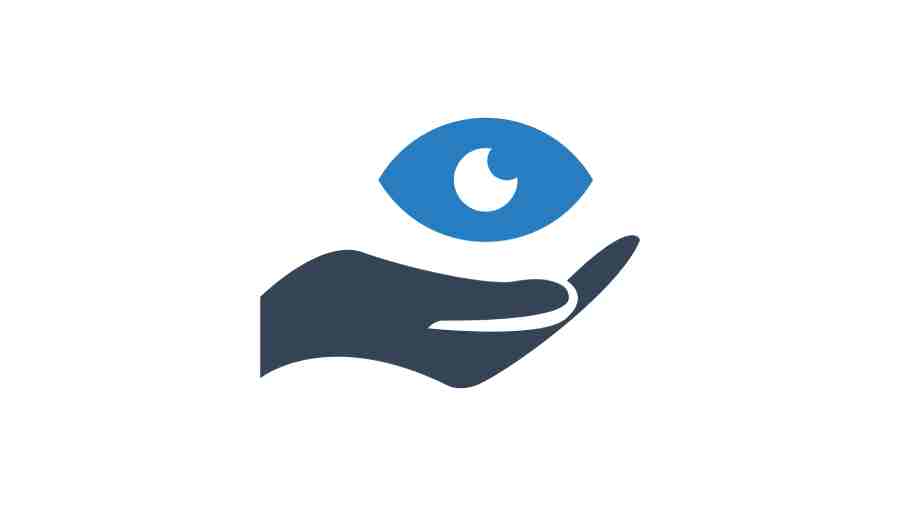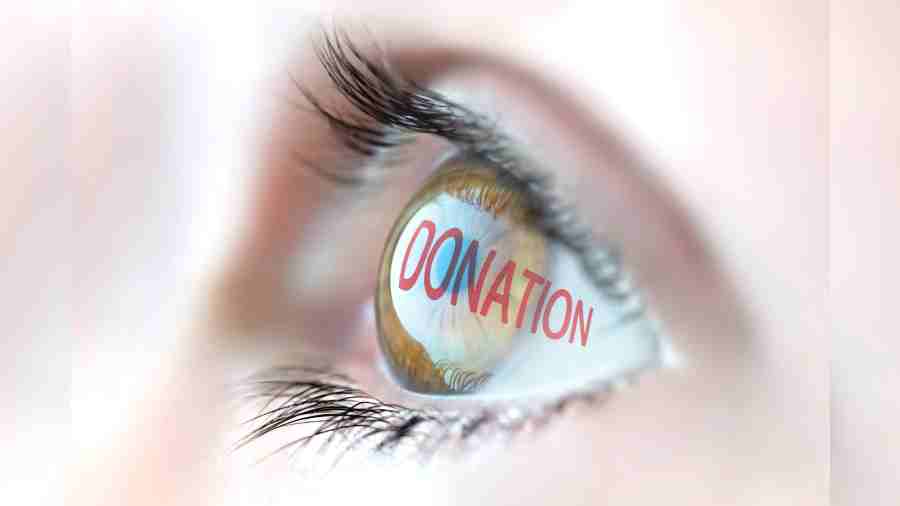Six hours. That’s all the time there is for eye donation to be viable after the donor has breathed his last. Yet, many families take the decision late.
“For the cornea to be fit for collection, the process has to be completed within six hours of death,” said International Eye Bank Kolkata chief executive officer Moloy Roy.
Such insights were being shared during a seminar to increase awareness on the need for posthumous eye donation, organised by the DD Block-based eye bank to mark national fortnight on eye donation.
“There are two main problems that we face today regarding eye donation. People think that it would be aesthetically displeasing. And if the family does take the decision to donate, often they do it too late,” Roy said.
Every year, he pointed out, there are over a crore deaths in India. “If the awareness programmes were run effectively, we would not have had this scarcity of corneas here. While less than one per cent of the bereaved populace know about eye donation, less than 0.1 per cent want to donate eyes or take the decision at the right time. For the cornea to be of use, the process has to be completed within six hours of death. In case of death in a hospital, the processing of the death certificate takes around four hours. In such a case, we ask the families to inform the hospital about their intention as soon as possible, so that the authorities can speed up the process,” he said.
Lack of volunteers is another obstacle faced in this initiative. “We are all nearing 80 (years of age). Our physical abilities are restricted. We request all of you to join us in this noble cause. Many of those who have recently retired want to utilise their time somewhere. This might be a good platform for them,” Haripada Kejriwal, president of the Kolkata chapter, said.
Spotlight on cornea donation

Who can donate eyes?
Everyone with a healthy cornea. Refractive errors, cataract surgeries, liver or kidney diseases do not limit your ability to donate eyes.
How much does it cost to donate eyes?
It is free. Eye banks don’t charge for collection of eyes. Neither do they charge the recipients or the doctors.
How can I donate my eyes?
You can get a Pledge Card from the International Eye Bank branch in Salt Lake (DD 27/F/1, 9830334868) and get it signed by two witnesses and forward it to the eye bank. It is important to let your family know that you have decided to donate your eyes. One can also donate a family member's eyes if they hadn’t taken the pledge. It is advisable to keep the phone numbers of NGOs and eye banks handy. In Salt Lake, Sushrut Eye Foundation & Research Centre has a 24-hour eye bank capable of collecting cornea after death from hospitals.
What does the family need to do after the death of their loved one?
The hospital needs to be intimidated that you desire to donate eyes, organs or the body or all, as soon as possible, so that they can expedite the process of issuing a death certificate. Only a photocopy of the death certificate needs to be submitted for donating eyes.
Does any religion disapprove of eye donation?
No. While Jainism actively propagates donation of organs, Hinduism does not mention anywhere that it is a sin to donate. In fact, Swami Vivekananda has repeatedly stressed on how serving mankind is the path to serve god. By donating one's eyes, one is providing vision to a blind person who might otherwise have spent his life in darkness.
(Based on information collected from the seminar)
Has there been any eye donation in your family yet? Write to The Telegraph Salt Lake, 6 Prafulla Sarkar Street, Calcutta 700001 or email to saltlake@abp.in
